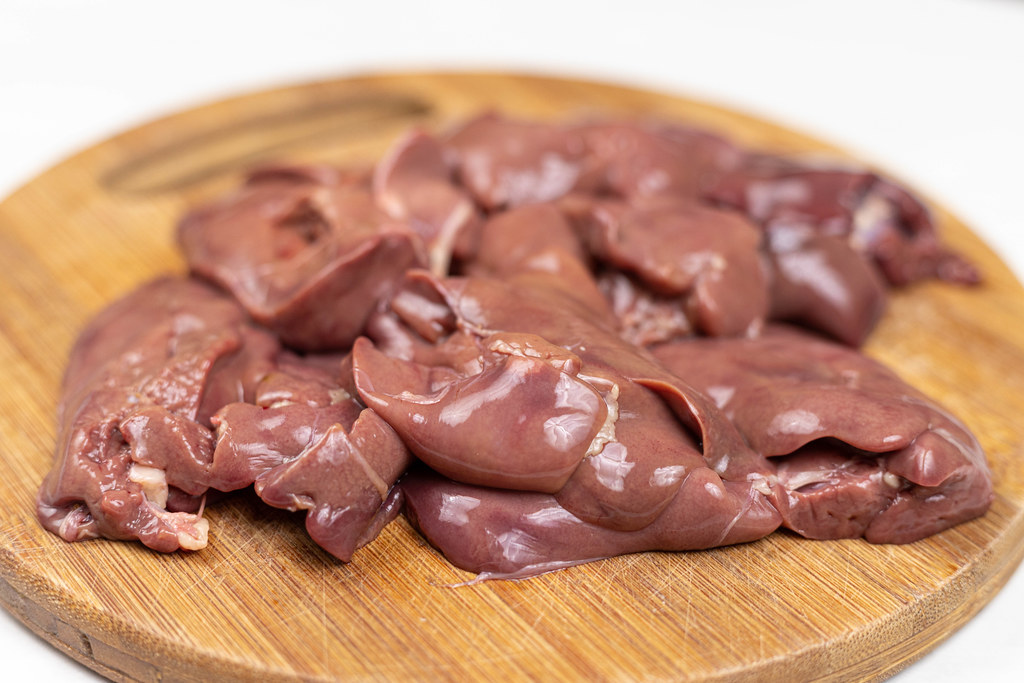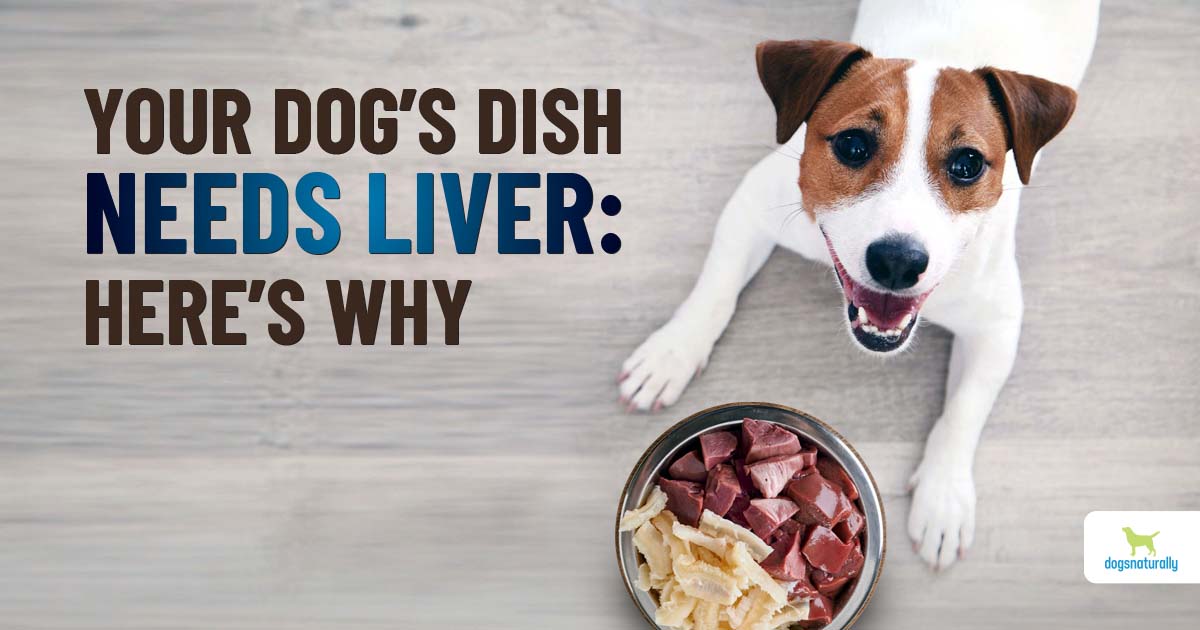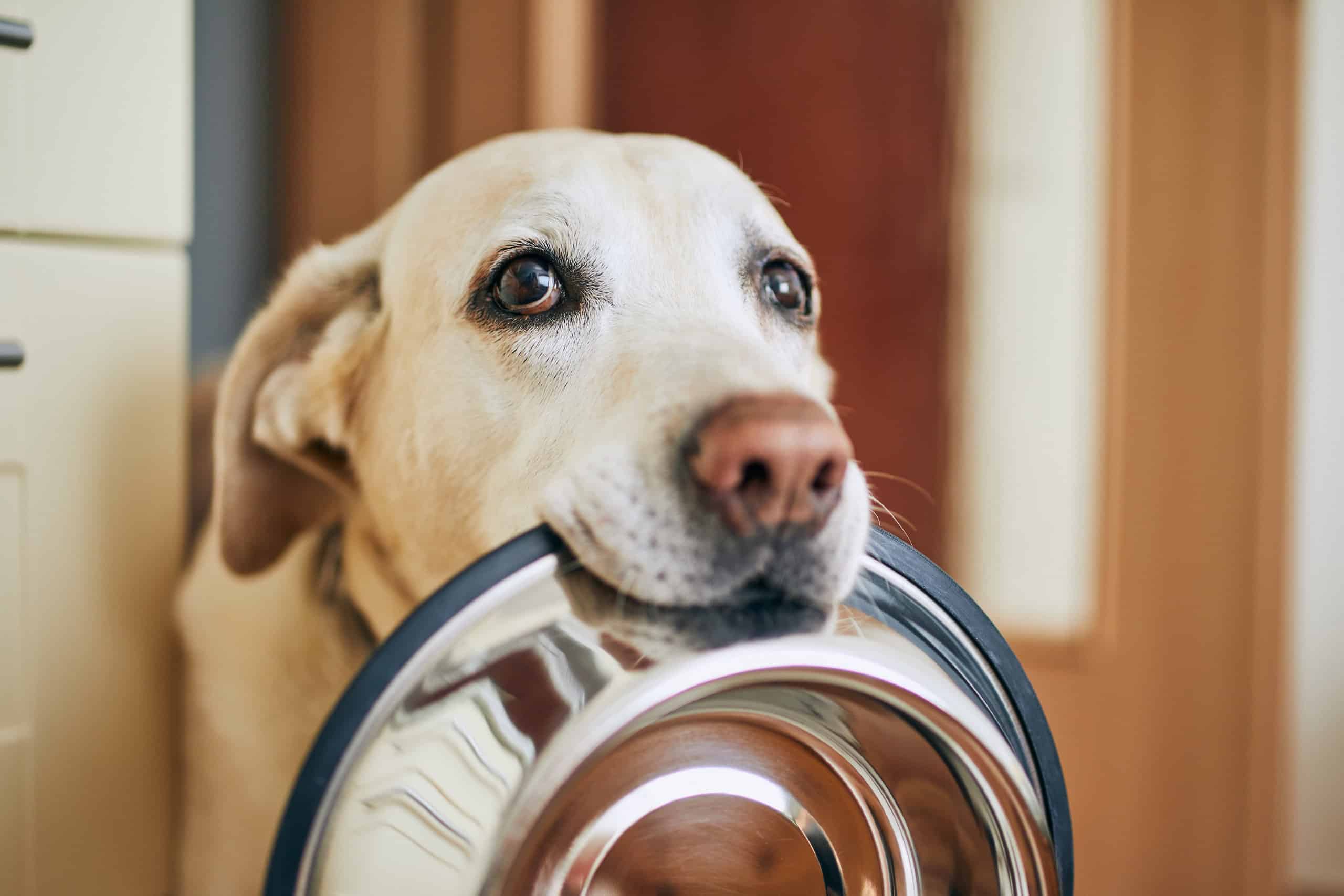Introduction

Chicken liver is a popular food choice for many dog owners, as it is not only nutritious but also tasty for our canine companions. With its high levels of essential nutrients and vitamins, chicken liver can contribute to a healthy diet for dogs. However, it is important to be aware of the potential risks and concerns associated with feeding this organ meat to dogs. In this article, we will explore the benefits of serving chicken liver to dogs, as well as the precautions that should be taken before incorporating it into their diet.
The Nutritional Value Of Chicken Liver For Dogs
Chicken liver is highly nutritious and offers many health benefits for dogs. It is packed with essential nutrients and vitamins, making it an excellent addition to their diet. Chicken liver is rich in protein, which is essential for muscle growth and repair. It also contains high levels of vitamin A, B vitamins, iron, and zinc, which contribute to healthy skin, coat, and immune system. Additionally, chicken liver is a great source of vitamin C and E, which act as antioxidants and support overall well-being. Feeding chicken liver in moderation can provide dogs with a range of nutritional benefits.
Potential Risks And Concerns With Feeding Chicken Liver To Dogs
Feeding chicken liver to dogs can have potential risks and concerns that dog owners should be aware of. One of the main risks is the high vitamin A content in liver. Excessive consumption of vitamin A can lead to toxicity in dogs, causing symptoms such as bone abnormalities, joint pain, and digestive issues. Additionally, it is important to choose high-quality liver from a trusted source to minimize contamination risks. Liver can contain harmful substances like pesticides and toxins if not sourced properly. It is important to feed chicken liver to dogs in moderation and consult with a veterinarian for personalized advice.
Benefits Of Feeding Chicken Liver To Dogs

Feeding chicken liver to dogs can provide several benefits to their overall health and well-being.
- Rich source of essential nutrients and vitamins: Chicken liver is packed with essential nutrients such as protein, iron, vitamin A, vitamin B12, and folate. These nutrients contribute to healthy muscle development, improved energy levels, and a strong immune system.
- Supports healthy digestion and immune system: The high levels of vitamin A and B vitamins in chicken liver promote optimal digestion and support a healthy immune system. Additionally, the iron content helps in the production of healthy red blood cells.
Feeding chicken liver to dogs in moderation can be a nutritious addition to their diet and support their overall health. It is important to consult with a veterinarian for personalized advice.
Rich Source Of Essential Nutrients And Vitamins
Chicken liver is a rich source of essential nutrients and vitamins that are beneficial for dogs. It is packed with high-quality protein, amino acids, zinc, copper, iron, and vitamin B-complex. These nutrients are important for maintaining healthy muscle development, improving energy levels, and supporting a strong immune system. Additionally, chicken liver contains omega-3 and omega-6 fatty acids, which contribute to a silky smooth coat in dogs. The vitamin A found in chicken liver is also great for promoting eye health in dogs. Incorporating chicken liver into a dog’s diet can improve their appetite and overall health when given in appropriate quantities.
Supports Healthy Digestion And Immune System
Chicken liver not only provides essential nutrients and vitamins but it also supports a healthy digestion and immune system in dogs. The high-quality protein and amino acids in chicken liver facilitate proper digestion, helping to prevent digestive issues such as constipation or diarrhea. Additionally, the vitamins and minerals found in chicken liver aid in strengthening the immune system, allowing dogs to better fight off infections and diseases. By incorporating chicken liver into their diet, dogs can experience improved digestion and a stronger immune system, promoting overall health and well-being.
Precautions Before Feeding Chicken Liver To Dogs

Before introducing chicken liver into a dog’s diet, it is important to take certain precautions.
- Moderation is key: Chicken liver should be given in moderation as too much can cause digestive upset or weight gain due to its high fat content.
- Consider individual needs: Dogs with certain health conditions, such as pancreatitis or liver disease, may need to avoid or limit their intake of chicken liver. It is important to consult with a veterinarian to ensure the suitability of chicken liver for your dog’s specific dietary needs.
By taking these precautions, you can ensure that feeding chicken liver to your dog is done safely and with their overall health in mind.
Moderation Is Key
When it comes to feeding chicken liver to dogs, moderation is key. While chicken liver is a nutritious food for dogs, it should be given in moderation. Too much chicken liver can cause digestive upset or weight gain due to its high fat content. It is important to strike a balance and only feed your dog a suitable portion of chicken liver based on their size, age, and overall health. Consulting with a veterinarian can help determine the appropriate amount of chicken liver to include in your dog’s diet.
Consider Individual Dog’s Dietary Needs And Health Conditions
When feeding chicken liver to dogs, it is crucial to consider their unique dietary needs and health conditions. Some dogs may have specific dietary restrictions or sensitivities that should be taken into account. For example, dogs with liver disease or certain medical conditions may need to avoid or limit their intake of liver. Additionally, dogs with allergies or sensitivities to specific ingredients should be given alternative options. It is important to consult with a veterinarian to determine the appropriate amount and frequency of chicken liver for each individual dog based on their specific needs.
How To Feed Chicken Liver To Dogs

When feeding chicken liver to dogs, it is important to consider the appropriate serving size and cooking methods. For smaller dogs, dice the chicken livers into tiny bite-size pieces, while for medium to large dogs, cut them into slightly larger pieces. Feed your dog an appropriate serving based on their size. It is crucial to avoid overfeeding as chicken liver is high in fat and vitamin A. To determine the most accurate serving suggestion, consult with your veterinarian. Remember to incorporate chicken liver as part of a balanced diet for your furry friend.
Cooking Methods For Chicken Liver
When it comes to cooking chicken liver for your dog, there are a few methods to choose from. One popular option is to boil the chicken livers in water until they are fully cooked. This helps to remove any excess fat and makes the liver easier for your dog to digest. Another option is to lightly sauté the chicken livers in a small amount of olive oil or coconut oil for added flavor. You can also bake or grill the chicken livers for a different texture. Regardless of the method you choose, be sure to thoroughly cook the liver to eliminate any potential bacteria.
Serving Size And Frequency
When it comes to serving chicken liver to dogs, it’s important to consider the appropriate portion sizes and frequency. For small dogs, it is recommended to feed them up to 10-15 grams (0.35-0.53 oz) of chicken liver, while medium-sized dogs can have up to 25-30 grams (0.88-1.06 oz), and large dogs can be given up to 40-60 grams (1.4-2.1 oz). It is advised to offer chicken liver to dogs no more than 1-2 times a week. Keep in mind that chicken liver should be treated as a special snack rather than a regular meal replacement for your furry friend’s diet. Remember to consult with your veterinarian for specific serving suggestions based on your dog’s individual needs.
Potential Risks And Side Effects

Feeding chicken liver to dogs can come with potential risks and side effects. It is important to be aware of these factors before incorporating it into their diet. Some of the potential risks and side effects include:
- Possible allergies and sensitivities: Just like humans, dogs can have allergic reactions to certain foods, including chicken liver. It is important to monitor your dog for any signs of an allergic reaction, such as itching, vomiting, or diarrhea.
- Risk of bacterial contamination: Raw or undercooked chicken liver can carry harmful bacteria such as Salmonella or Campylobacter. This can pose a risk of infection for both dogs and humans. It is crucial to handle and cook the liver properly to minimize the risk of bacterial contamination.
Ensure that you take the necessary precautions and consult with your veterinarian before including chicken liver in your dog’s diet.
Possible Allergies And Sensitivities
Feeding chicken liver to dogs can potentially lead to allergies and sensitivities. Just like humans, dogs can have allergic reactions to certain foods, including chicken liver. It is important to monitor your dog for any signs of an allergic reaction, such as itching, vomiting, or diarrhea. If your dog exhibits any of these symptoms after consuming chicken liver, it is best to discontinue feeding it and consult with your veterinarian. Every dog is unique, and it is crucial to consider their individual dietary needs and sensitivities before introducing new foods into their diet.
Risk Of Bacterial Contamination
When feeding chicken liver to dogs, there is a risk of bacterial contamination. Raw chicken livers can contain harmful bacteria such as salmonella or Campylobacter, which can cause food poisoning in both dogs and humans. It is crucial to thoroughly cook the chicken livers to eliminate any risk of bacterial contamination. Overcooking the livers may result in dryness, so finding the perfect balance is essential. Cooling the cooked livers before serving them to your dog ensures they are safe to consume. Always prioritize your dog’s health and take precautions to prevent any bacterial contamination.
Conclusion

In conclusion, serving chicken liver to dogs can be a beneficial addition to their diet when done with caution. Chicken liver is a rich source of essential nutrients and vitamins that can support a dog’s overall health, digestion, and immune system. However, it is crucial to take precautions such as cooking the liver thoroughly to eliminate the risk of bacterial contamination. Moderation and individual dietary considerations are key factors in safely incorporating chicken liver into a dog’s diet. It is always recommended to consult with a veterinarian for personalized advice regarding your dog’s specific needs and health conditions.
Balancing The Benefits And Risks Of Feeding Chicken Liver To Dogs
Balancing the benefits and risks of feeding chicken liver to dogs requires careful consideration. While chicken liver offers numerous health benefits, such as being a rich source of essential nutrients and supporting digestion and the immune system, there are also potential risks to be aware of. These risks include possible allergies and sensitivities, as well as the risk of bacterial contamination if the liver is not properly cooked. Therefore, it is important to weigh the advantages and disadvantages and make informed decisions when incorporating chicken liver into a dog’s diet. Consulting with a veterinarian can provide personalized advice and guidance based on the individual needs and health conditions of the dog.
Consulting With A Veterinarian For Personalized Advice
When it comes to making decisions about your dog’s diet, consulting with a veterinarian is always a wise choice. Every dog is unique, with different dietary needs and health conditions. A veterinarian can provide personalized advice based on your dog’s specific requirements. They can help determine if feeding chicken liver is suitable for your dog and guide you on serving sizes and frequency. Additionally, they can address any concerns or questions you may have regarding potential risks or allergies. By seeking expert advice, you can ensure that you are making the best choices for your furry friend’s health and well-being.
Frequently Asked Questions about Feeding Chicken Liver to Dogs
Q: Is it safe to feed chicken liver to dogs?
A: Yes, chicken liver can be a safe and nutritious addition to a balanced diet for dogs when given in moderation.
Q: Why is chicken liver beneficial for dogs?
A: Chicken liver is packed with essential vitamins, minerals, and proteins that can support your dog’s overall health. It is an excellent source of Vitamin A, Vitamin B12, Iron, Zinc, and other important nutrients.
Q: How should I serve chicken liver to my dog?
A: Before feeding chicken liver to your dog, it is crucial to cook it thoroughly to eliminate any harmful bacteria and reduce the risk of foodborne illness. You can boil, bake, or pan-fry chicken liver without adding any seasoning or oils.
Q: How much chicken liver should I feed my dog?
A: The amount of chicken liver you can feed your dog depends on their size, age, and overall health. As a general guideline, chicken liver should make up no more than 5% of your dog’s daily diet. Consult with your veterinarian to determine the appropriate portion size for your specific dog.
Q: Can chicken liver cause any health problems for dogs?
A: While chicken liver is generally safe for dogs, feeding excessive amounts can lead to digestive upset or diarrhea due to its high protein content. Additionally, dogs with certain medical conditions (such as pancreatitis or kidney disease) may require strict dietary restrictions, and chicken liver should be used cautiously or avoided.
Q: Can chicken liver be given as a treat?
A: Yes, chicken liver can be a healthy and tasty treat option for dogs. You can cut cooked chicken liver into small, bite-sized pieces and offer them as an occasional reward during training sessions or as an extra special snack.
Q: Are there any alternatives to chicken liver for dogs?
A: If you are looking for alternative protein sources or your dog has specific dietary restrictions, you can consider feeding other organ meats like beef liver or pork liver. Additionally, there are commercially available dog treats and supplements that can provide similar nutritional benefits.
Q: How should I store chicken liver for my dog?
A: Raw chicken liver should be stored in the refrigerator in an airtight container and consumed within one to two days. If you have cooked the chicken liver, it can be refrigerated for up to four days. Alternatively, you can freeze cooked chicken liver in sealed containers or freezer bags for longer storage.
Remember, it’s always best to consult with your veterinarian before making any significant changes to your dog’s diet or introducing new foods, such as chicken liver, to ensure it aligns with their specific needs and health conditions.

Kemah Cafe is a family-owned eatery that takes pride in offering a delightful array of Vietnamese, Chinese, and Thai dishes. Located at the heart of the community, Kemah Cafe has been serving up delicious Pho and other authentic Asian cuisine for many years. Founded with a passion for sharing the flavors of the East, Kemah Cafe has become a beloved culinary destination for locals and visitors alike. The warm and welcoming atmosphere of the cafe, combined with the tantalizing aromas of freshly prepared dishes, creates an unforgettable dining experience.